Nicaragua Study Tour: Managua to Matagalpa
James Hayes-Bohanan, Ph.DBridgewater State College
Day 3: January 5, 2006
Revised January 22, 2006
Revised January 22, 2006
Nicaragua Study Tour: Managua to Matagalpa
James Hayes-Bohanan, Ph.D |
|
We spent our second full day in Nicaragua
exploring the villages and volcanoes to the south of Managua, including
the National Park at Masaya. and the villages of the plateau Meseta de
los Pueblos.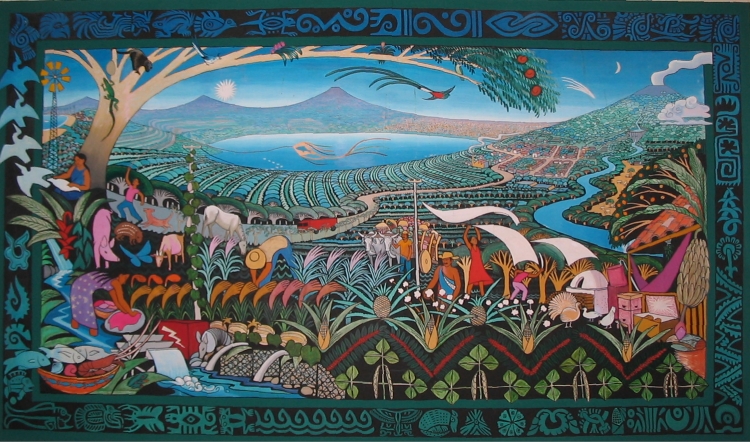
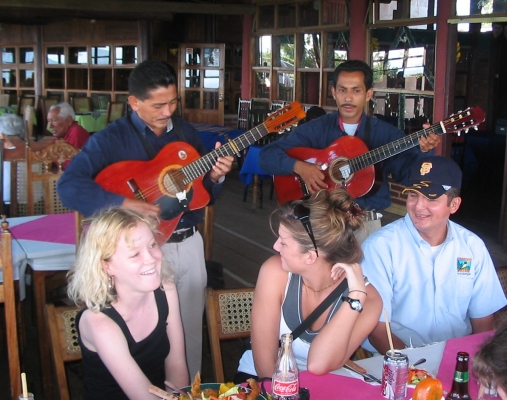 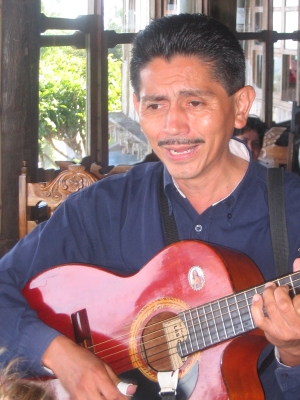 After visiting Masaya, we ate at a wonderful spot overlooking a volcanic lagoon. The musicians who came to our tables were magnificent! 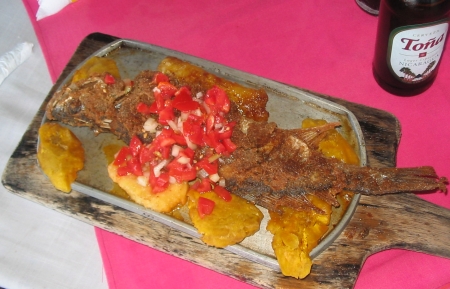 The menu was quite diverse -- Pam and I opted for a sizzling fish platter that was a bit fishier than what we normally would try! It looked rather horrendous, but it was quite tasty. We opted not to eat the heads, though. Incidentally, in Nicaragua, Toña is a popular beer, and for good reason.
The spot where we enjoyed lunch was a destination not only for tourists but also for local families holding birthday parties. The view was amazing, with a volcanic lagoon below us and the colonial city of Grenada in the distance (middle-left of the photo). If I am able to return to Nicaragua for another tour (which I hope to do in January 2007), I intend to end the trip at Grenada, because of all the great things I heard about it. 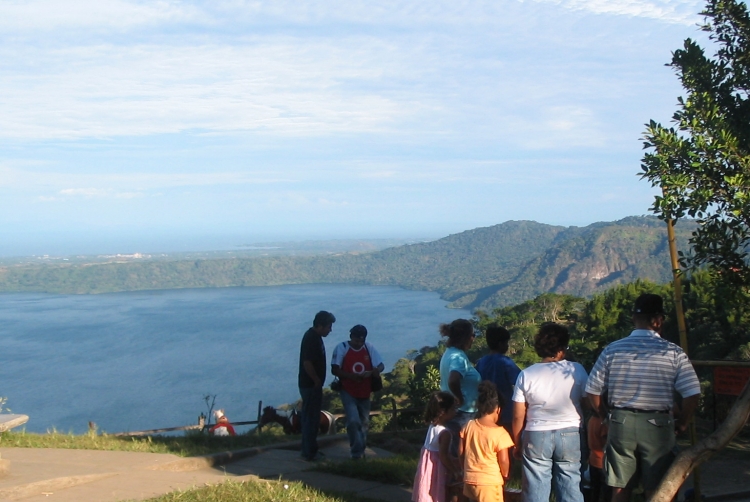 One of our students -- Adrienne -- was particularly interest in learning about microfinance, a development strategy in which communities manage very small loans to community members, in order to finance small businesses. When we arrived at a pottery shop in one of the villages, Adrienne noticed that the shop next door is part of a microfinance project, and in fact is affiliated with Pro Mujer, an organization that Adrienne and Pam had learned about at a conference in Massachusetts a few months earlier. The sign reads Pro Mujer -- Supporting the Nicaraguan Small-business woman -- Together we can. At the right is the sales shop for this small business, a cooperative of six women and two men. One of the men happened to be watching the shop when we arrived. He explained that the intention of the business was to support women, but that some men needed to be involved for it to be accepted as a legitimate business. All of the members took turns operating the sales shop. They were all quite busy in their workshops at the moment, he said, because someone had purchased 300 pieces of pottery for export the day before.  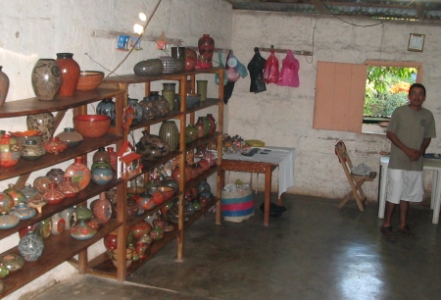 While we were busy in the Pro Mujer shop, the rest of our group was learning pottery at the shop next door, a small, family-owned business that manages to produce hundreds of exquisite pieces a week for export. Several of our students learned just how challenging it is to make pottery, but they did pretty well! The expert, who is a son of the owner, is shown in the middle.
|